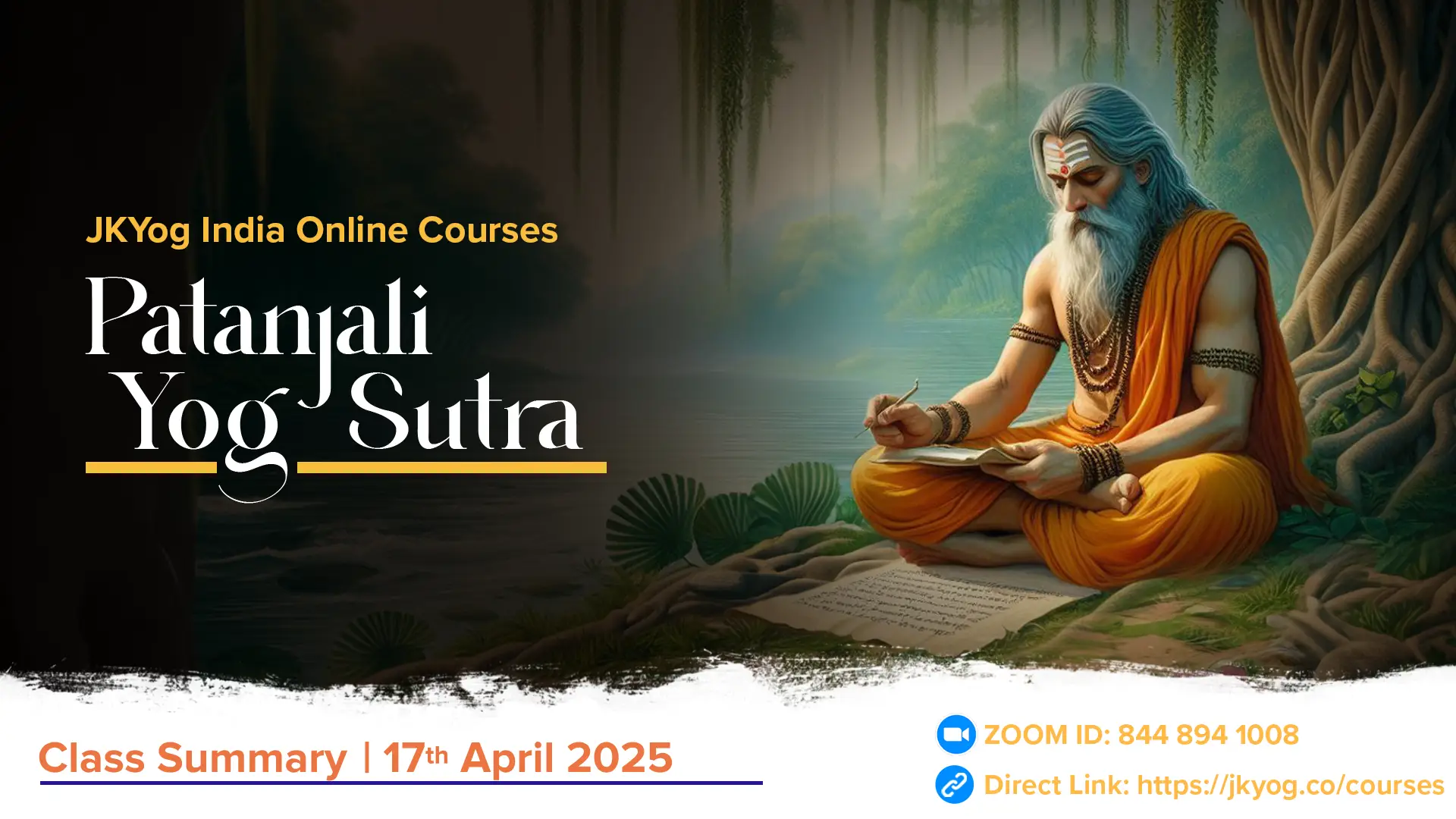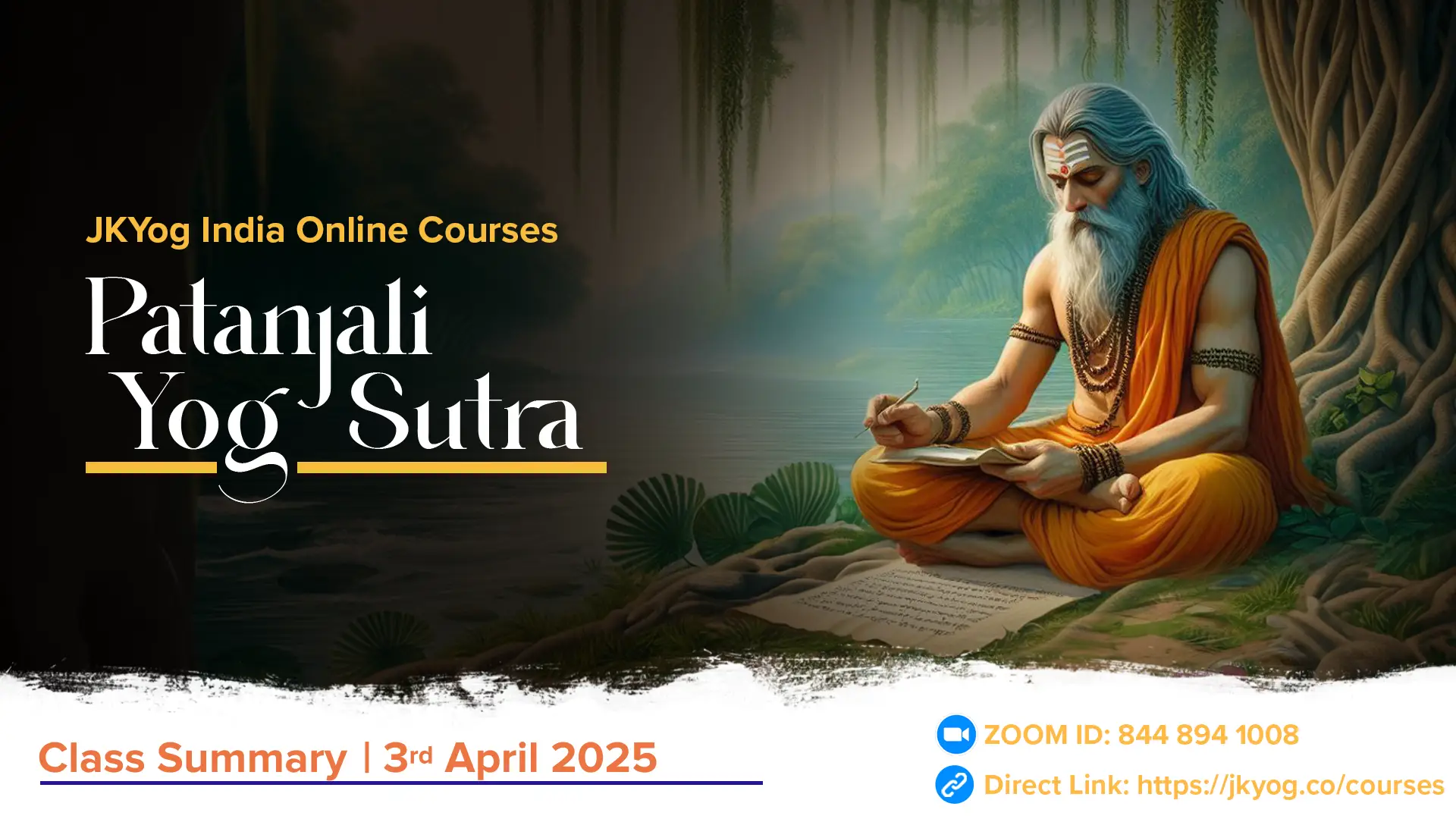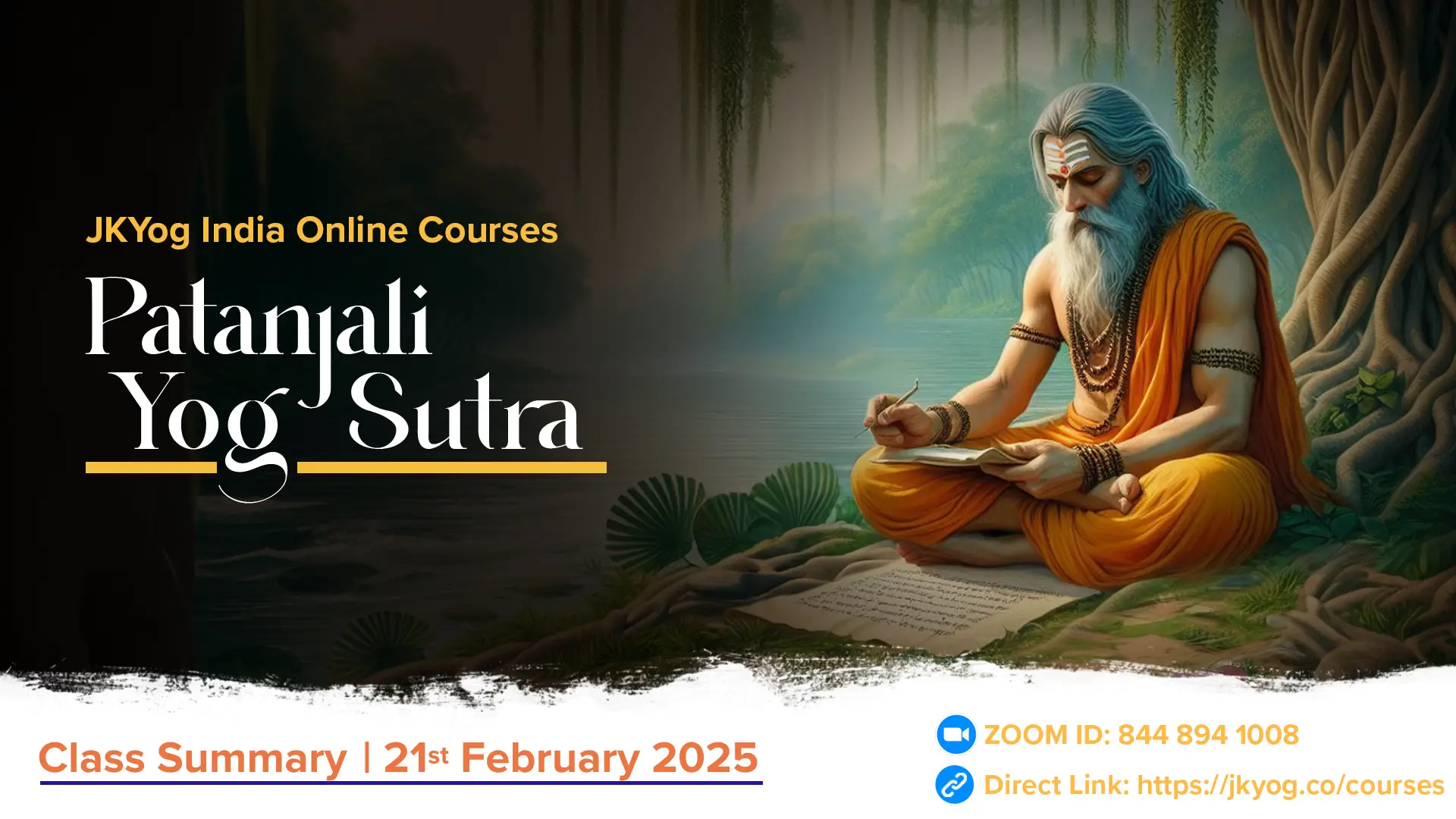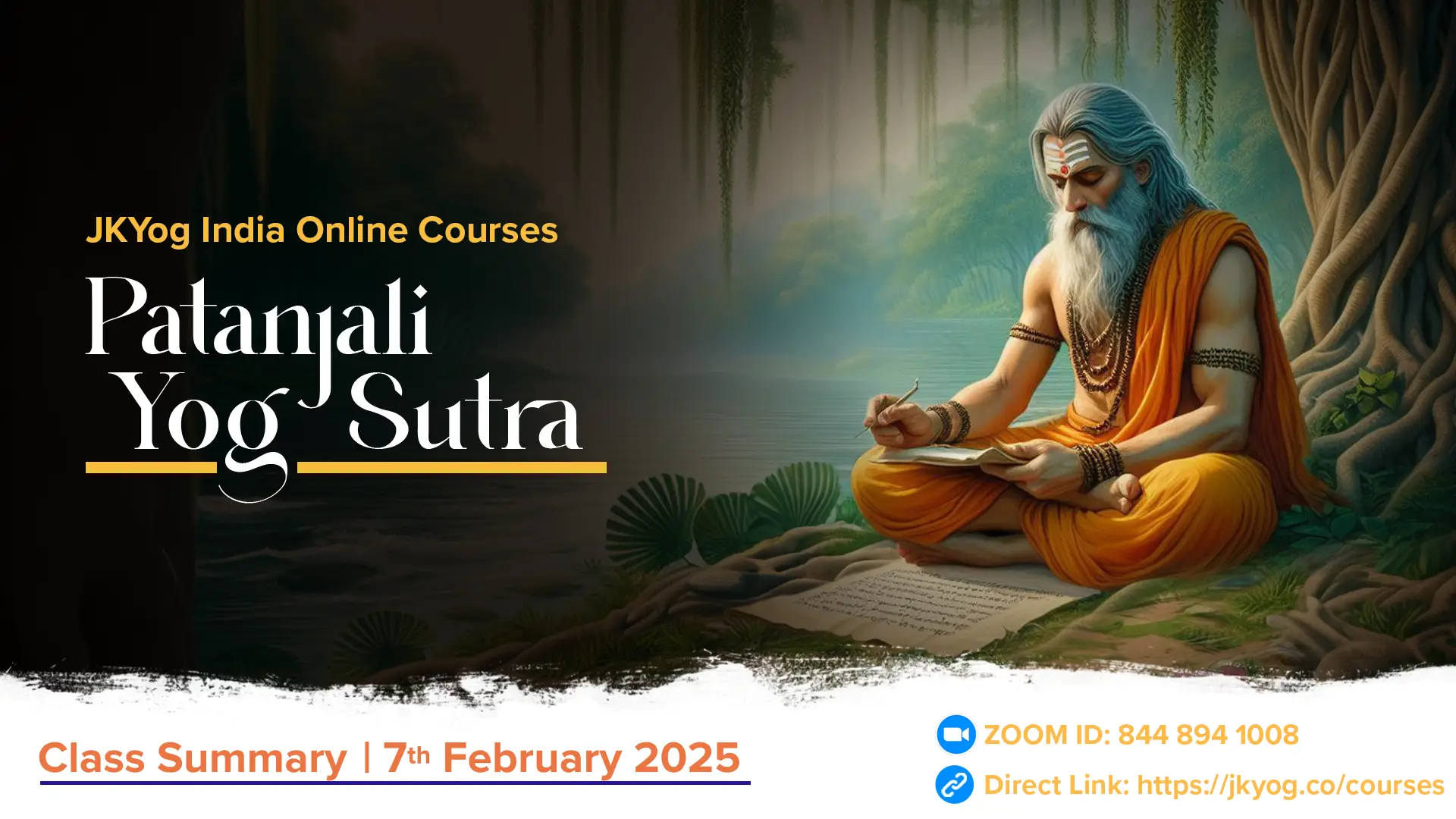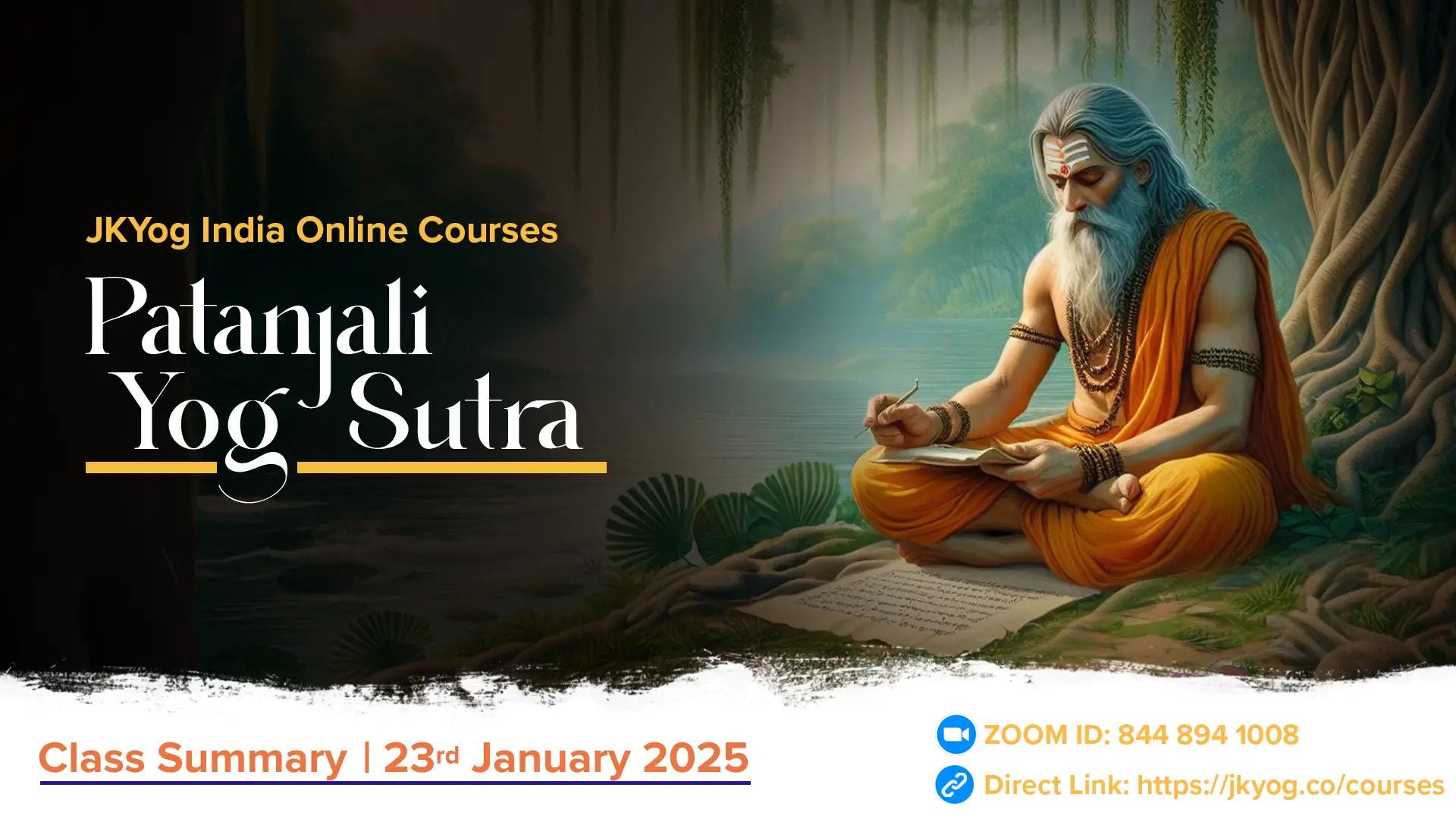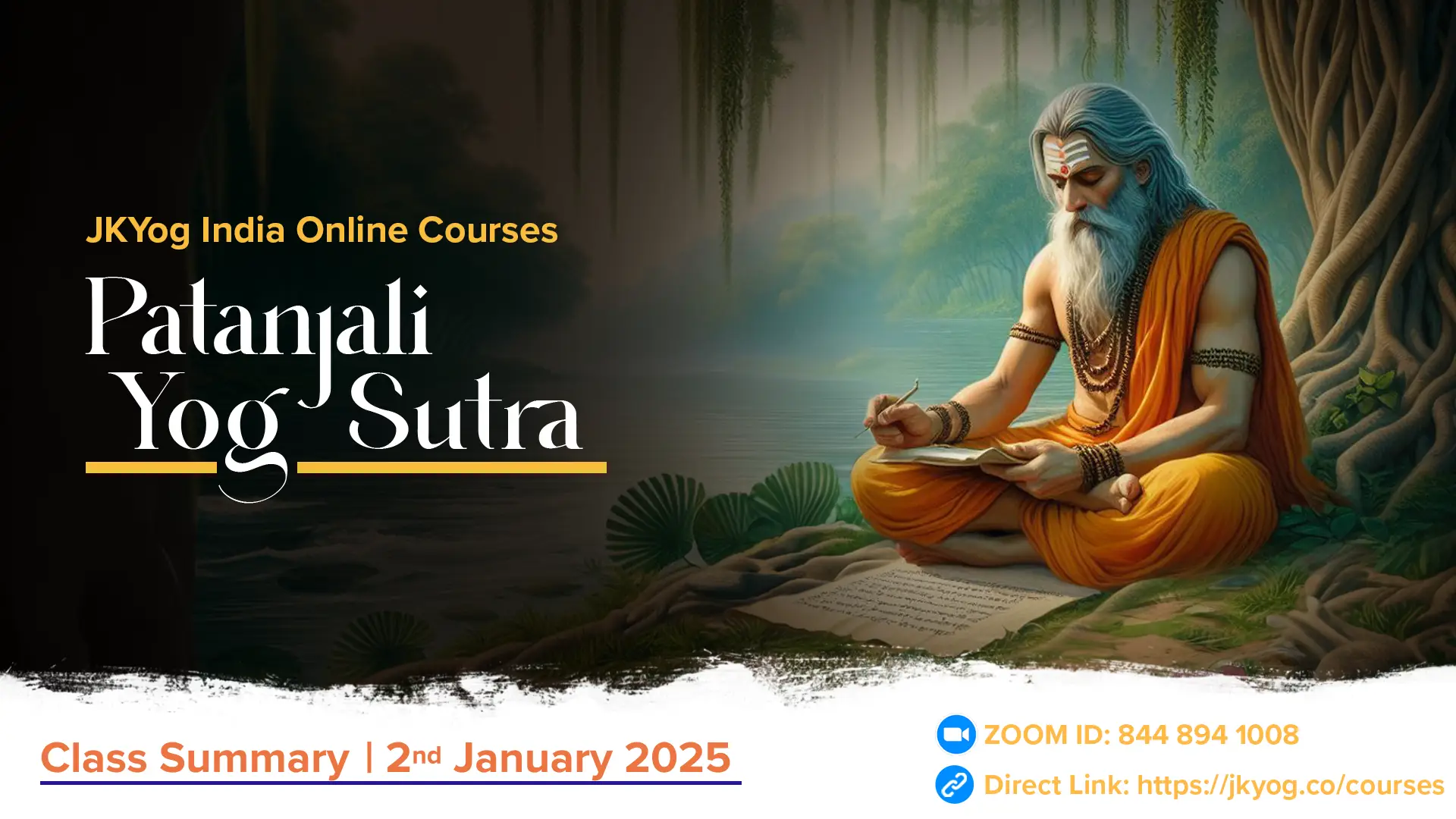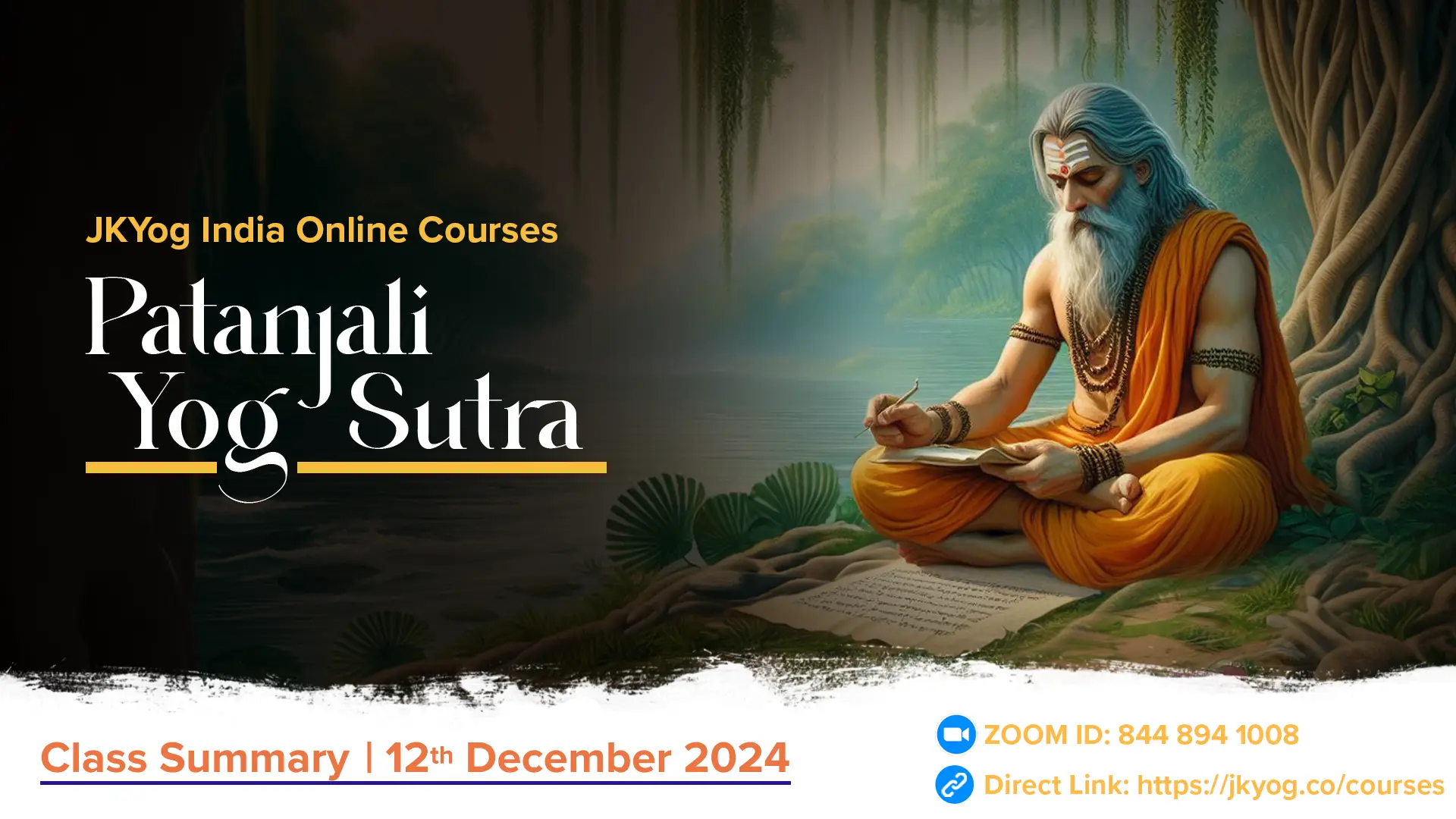Sutra 3.19
प्रत्ययस्य परचित्तज्ञानम् || 3.19 ||
pratyayasya paracitta-jñānam || 3.19 ||
pratyayasya - content of the mind; paracitta - minds of others; jñānam - knowledge
Translation :
By performing saṁyama on the content of the mind, one can read the minds of others.
Reading the mind of others
One more occult practice is mentioned in this sūtra. It has to be taken with a pinch of salt. The suggested idea is that one must not fall prey to such practices but march towards the final goal of kaivalya. Coming back to reading the thoughts of others, to some extent, facial expressions, body language, and tone of voice help one to assess what is in the minds of others.
Control ego
It is not a sin to know what is in the minds of others. But all problems arise when one puts his ego into such practices. If one is able to transcend that tendency and observe the thoughts of others without any bias, one can make use of that gift for better purposes.
Shree Ramakrishna could know what was going on in the mind of Rani Rasmani Devi and told her that it was not correct to think about worldly things in a temple. She was actually thinking about a case that was scheduled in the court proceedings on that day. She felt sorry for her act.
Do not misuse occult powers
Many immature seekers have fallen from the path of yoga due to abuse or misuse of such occult powers. That is why the wise saints always warn the seekers not to fall prey to such powers and work toward antaḥ karaṇa śuddhi and śaraṇāgati (surrender) to Shree Hari and Guru.
What is the necessity of this sutra?
For an ordinary person, who is studying yoga superficially with ordinary desires and wants the name and fame associated with the same, the occult powers or siddhis may be an attraction. He may not indicate it, but deep down, the subconscious mind may have the underlying desire.
When he studies the kleśa philosophy, he might realise that these powers are also part of the illusory side of life, which a true yogī should transcend. The application of occult power does not free him from basic illusions of life and so cannot bring him enlightenment and peace. Rather, it distracts the mind from its true goal and may bring downfall in the sādhaka’s spiritual progress.
Yogins are not interested in miracles
The real yogīs do not take the slightest pleasure in displaying the siddhis and do not exhibit them in public. So ordinary men may conclude that such powers do not exist in this world.
But a careful study of history indicates that there are people in this world who have attained these supernatural powers, but would not like to exhibit them in public, except to their honest disciples.
So, there are also people who have acquired lower siddhis and who sell them for money and power; such yogīs get entrapped into this game and their spiritual progress stops.
Empathic accuracy
Humans cannot literally read the minds of others, but can create mental models so as to effectively intuit people's thoughts and feelings. This is known as empathic accuracy, and it involves “reading” cues telegraphed by the words, emotions, and body language of another person.
What is the advantage of reading the minds of others?
Psychological doctors can read the minds of individuals afflicted with psychotic disorders and introduce proper remedies for such problems
Five points for mind reading
- Pay attention to nonverbal cues
- Ask open-ended questions
- Listen actively
- Develop empathy
- Practice mindfulness
Let us continue our discussion on this topic in the upcoming classes.
Summary: JKYog India Online Class- Patanjali Yog Sutra [English]- 17.4.2025

